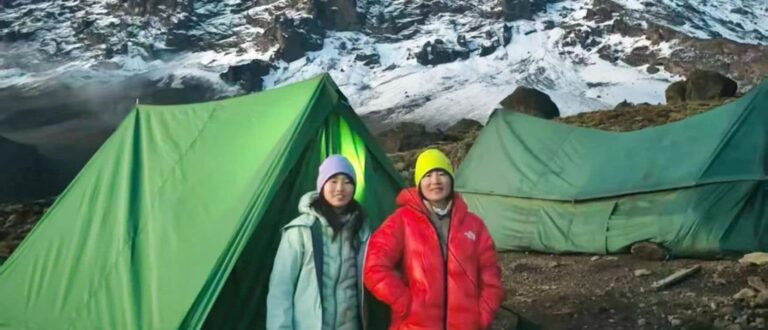Find out why students, parents, teachers and administrators alike choose to enroll in a course of study for the audio-visual arts at WISS.
The area of audio-visual production has gone through tremendous transformations over the past decade. During that time, streaming services became content producers, financing independent productions as well as conceiving and making their own. Movie theatres have seen an explosion of CGI-heavy spectacles, which the public has become saturated with, resulting in a revival of smaller, story-focused films. The number of streaming services has increased, with more people worldwide consuming media through computers, smartphones, and smart TVs. YouTube has become the training ground for new talent in all areas of media, where independent content creators are free to follow their vision and present it to audiences of millions. Moreover, companies that generally utilize still images as a basis for their advertising are turning toward short-form video. Simply put, there has never been a better time to get involved in video production.
Within the changing industry landscape come evolving expectations of those who work within it. Audiences are better informed about cinema history, theory, and techniques than ever before. Thus, no matter what form your final product takes, it must be polished and communicated effectively to make an impact. Whichever area a newcomer hopes to work in, they will need to have a working knowledge of cinematography, lighting, sound, editing, and story to support the team’s work. As in so many other areas of work, it is rare to be able to solely specialise early in one’s career. Anyone starting in AV production should expect to help in a range of production roles. Eventually, the aim is generally to work on large productions in individual roles, but even then, one must understand all those areas to do the job well. The weapons makers who worked on the “Lord of the Rings” trilogies had highly specialised skills but were still required to know how something might look through a camera lens in order to create a usable arsenal! Additionally, they needed the creativity and imagination to make each weapon suit the race it belonged to, which involved immersing themselves in the story.
Why choose WISS as a start for your filmmaking journey?
At the Western International School of Shanghai (WISS), students ideally begin their filmmaking journey in Grade 9 with IB Middle Years Programme (MYP) Media. The course has been specifically structured to allow students to build foundational skills and knowledge that they will utilize later in DP Film. Working initially with still photography, students learn how to manually control their images’ exposure to achieve the desired results. They learn framing, composition, and basic color theory while exploring the work of renowned photographers of the past and present. Together, the students and teacher explore the ways in which an image can tell a story and how we, as viewers, can bring our own interpretations to what we see.
From there, we move on to video, where students build upon the framing and compositional knowledge to add camera movement and angles. Every choice behind the camera should communicate to the audience in some way, and this introduction ensures that not only are students able to recognize this level of non-verbal communication, but they can also start to use it themselves. Video editing is also covered, where students can begin developing a sense of the importance of the pace of edit. The idea of analyzing films is also introduced, giving students a chance to start extracting more meaning and understanding from anything they watch.
Next up is audio recording and manipulation, where students learn to appreciate the degree to which sound plays a part in story-telling and scene setting. Grade 9 is rounded off with an introduction to photo-realistic 3D design in Blender. Blender is a remarkable tool, completely free yet capable of creating professional results.

In Grade 10, we continue developing the skills students learned with Blender to move on to virtual set design. Students design their own environment in Blender and build it, including the placement of lights. They then film in our Imaginarium (a totally green room) under lights that they have set up to mimic their work in Blender. They can combine the actual footage with the computer design so that the virtual camera behaves the same way as their real-world camera. This opens the door to a whole new world of filmmaking and encourages them to start seriously considering lighting in their productions. The rest of Grade 10 builds further upon the foundation of Grade 9, emphasizing film analysis.
By the time Media students at WISS enter DP Film in Grade 11, they are already at home with the hardware and software involved in filmmaking. We use DSLRs so that students maintain a high level of control in terms of exposure. We also have a range of lenses to allow students to experiment with different focal lengths for different situations. For editing and post-processing, we use the Adobe Creative suite, which they will likely encounter in the professional world.
DP Film is geared towards deepening the student’s understanding and appreciation of film across cultures separated by time and geographical location. Students explore the theory of editing established by Soviet filmmakers in the early 20th Century. They investigate German Expressionism from the silent era, French New Wave and Japan’s Golden Age from the 50s and 60s, and New Hollywood from the 1970s. All of these periods of film history propelled the art forwards, and many established practices and techniques which can be recognized today. As their knowledge of film as a medium grows, they can put theory into practice with multiple practical assignments across the two-year course. We also explore more modern films from China, Sweden, Germany, and a host of other countries. Some of this is baked into the course from the IB, and some are at the teacher’s discretion, but by the end of the course, students will have been exposed to a wide range of films covering many genres, countries, and times.
What to expect if you choose Film and Media Studies at WISS.
Any student who elects to follow the MYP Media and DP Film course at WISS can expect to gain the following:
- The experience of working in teams to conceive, plan and finish productions. It is inevitable that through these experiences, students develop flexibility in thought and approach and the confidence to offer their own ideas while simultaneously listening to and considering the opinions of others.
- The knowledge and ability to use a video camera expressively and communicatively. These skills transfer to any camera they may encounter since the fundamentals of photography and videography remain the same.
- The knowledge and ability to edit video to a high standard, involving communication and interaction with their audience.
- An appreciation and awareness of films from around the world, throughout multiple genres and eras. This incorporates knowledge and understanding of different cultures and a chance to broaden perspectives.
- The ability to deconstruct and analyze film through detailed exploration of cinematography, narrative, character, edit, and sound. Development in these areas increases the capacity for abstract thought and ensures that, as audience members, they are intellectually and actively engaged rather than passively viewing.
- The practice of exhaustively researching a topic, organizing the results, and planning a structured piece of writing presents the research. It makes logical connections that give rise to information, inference, and conclusions. The skills and approaches developed here will serve the students throughout university and beyond, regardless of the subjects they choose to study.
From MYP Media to DP Film, students gain experience in still photography, cinematography, video editing, audio editing, lighting, directing, 3D environment design, film history, and film analysis. Exposure to such a wide variety of skills and disciplines allows students to explore their strengths and passions – they may surprise themselves with ability in an area they had not previously considered or discover that they are drawn to a particular area of film study or production which can result in lifelong engagement and fulfillment.
All aspects of the course, from the beginning of Grade 9 till the end of Grade 12, focus on explicit or implicit communication. A student who applies themselves throughout the four years of study will be amply prepared for further courses with a strong foundation in filmmaking skills. They will be more than capable of continuing to create their own productions, whether working individually or as part of a team. Perhaps more importantly, they will have made considerable progress as communicators, thinkers, team members, and problem solvers. The lessons learned and developments made through Media and Film at WISS are far-reaching and continue to serve each student long after the courses have finished.


By, Al McDowall, Media and Film Teacher / Theatre Manager at the Western International School of Shanghai.







